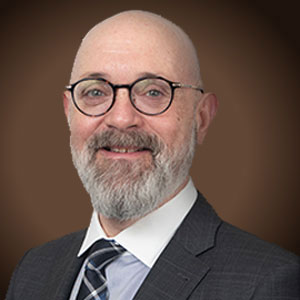Mark your calendars: April 7th, 2021 at 12:00pm starts our office's return to presenting live, in-person, seminars on a variety of topics! Certified Elder Law Attorney®, Robert W. Haley will be giving an estate planning seminar on 5 @ 55: Estate Planning Basics that everyone should have in place.
This free seminar is part of the NCI Life 2021 Series, and is being presented through New College Institute on 191 Fayette Street in Martinsville, VA. For more information or to register, please contact NCI directly at (276) 403-5671. While this presentation will be in-person and a welcome break from the 'virtual' Zoom presentations that our office had given last year, social distancing and mask protocols will still be observed for this event. We hope to see you there!
There are a certainly a lot of myths and misconceptions in Estate Planning! Whether at seminars in person, through consults or webinars and even over the phone, we often hear these myths listed below come up quite frequently:
MYTH#1: "Estate planning is only for the rich."
When people hear the word "estate", the automatic association is that of a millionaire, for example, "stately Wayne Manor". This is a popular misconception. Often, people believe that estate planning only benefits the wealthy, but nothing could be further from the truth.
If you own property and assets or have loved ones that depend on you to provide for their income or care, you have an estate and need a plan—regardless of the size of your estate!
Estate planning is something everyone needs to engage in regardless of age, estate size, or marital status. If you have a bank account, investments, a car, home or other property—you have an estate. More importantly, if you have a spouse, minor children, or other dependents, an estate plan is crucial for protecting their interests and their future income needs.
An estate plan can help you accomplish these and other important goals:
- Protect those who depend on you and your income during their lifetime.
- Name guardians for minor children, or adult-disabled children.
- Name the family members, loved ones, and organizations that you wish to receive your property following your death.
- Transfer property to your heirs and any organizations you’ve named in your estate planning documents in a tax-efficient and expedient manner, with as few legal hurdles as possible.
- Manage tax exposure.
- Name your executor and/or trustee – the individual(s) or institution you appoint to act in settling your estate and distributing your property.
- Avoid probate, the court process for proving that a deceased person's will is valid.
- Document the type of care that you prefer to receive should you become ill or incapacitated, including any life-prolonging medical care that you do or do not wish to receive. Do not assume that your loved ones "already know what you want."
- Express your personal wishes and preferences for funeral arrangements and how related expenses will be paid.
MYTH#2: "Estate planning isonlyabout distributing my assetsafterI’m gone."
Everyone knows that they need a will. But what happens when someone is in a serious accident, is in a coma, or is suffering from dementia or a stroke? Legacy and incapacity planning are two areas of planning that encompass far more than simply managing your assets during or after your lifetime.
Just like your goals, your legacy is unique to you and your family. While it includes important charitable planning goals and gifting strategies, it goes well beyond the monetary aspects to include passing down the values, experiences, hard work and memories that define your life and are important to you and your family in a way that’s meaningful to you.
Incapacity planning helps you prepare for unexpected events at every stage of your life from naming a guardian for your minor children, to who will manage your affairs if you’re no longer able to do so yourself, to the type of care you will you receive and who will oversee your care.
MYTH#3: "A will can oversee the distribution of all of my assets."
A will is a legal document that instructs how your property will be distributed after your death. It allows you to name an executor, who is your personal representative charged with overseeing the distribution of your property and shepherding it through the probate process. Probate is the process that’s required to validate your will and transfer your assets.
However, certain assets may sit outside of your will. These include life insurance policies or qualified retirement accounts (401(k)s, IRAs, etc.) that have a beneficiary designation, as well as assets or accounts with a pay-on-death (POD) or a transfer-on-death (TOD) designation. These assets transfer directly to the named beneficiaries and are not subject to probate. This is why it’s so important to review your account beneficiary designations annually or whenever changes in your life occur. For example, if you divorce and remarry and fail to update the beneficiary designation on your IRA account to your new spouse, your ex-spouse would receive those assets upon your death. Even if your will and/or trust names your current spouse as the beneficiary or co-trustee, since these assets sit outside of your will or a trust, they are not governed by those documents.
In addition to a will, it’s important to work with the right estate attorney to draw up other important legal documents to protect your interests and the interest of your dependents and/or heirs. These include:
- A Durable Power of Attorney is where you name and empower your “agent” to carry out any legal and/or financial decisions that have to be made on your behalf during your lifetime if you are unable to act on your own behalf. Unlike other powers of attorney extending specific or limited powers to a named agent, a durable power of attorney doesn’t end if you become incapacitated. However it should be known that, all powers of attorney end at your death.
- A Health Care Power of Attorney indicates who is empowered to make healthcare decisions on your behalf and spells out how you wish to be cared for, alleviating the burden on your family members and loved ones to make those decisions at a highly stressful and emotional time.
- A Living Willis a legal document that enables you to specify the kind of medical care you do or do not want to receive in the event of illness or incapacity.
- Trusts: While not everyone needs a trust, it can provide the confidence that you have a plan in place to help provide for the safe and accountable management of family assets and to direct their use and distribution in accordance with your wishes and objectives. It allows while you’re alive, for you to remain both the trustee and the beneficiary of the trust, maintaining control of the assets and receiving all income and benefits. Upon your death, a designated successor trustee manages and/or distributes the remaining assets according to the terms set in the trust, avoiding the probate process. In addition, should you become incapacitated during the term of the trust, your successor or co-trustee can take over its management. All trusts fall into one of two categories: revocable or irrevocable. Within these categories, many types of trusts exist to fulfill a broad range of needs and objectives.
MYTH#4: "Once I put a plan in place, I am finished! I don’t need to revisit it later."
Planning is never a “once and done” proposition. Your life, preferences and goals change over time, and may be also be impacted by outside influences, such as the financial markets, tax law changes and economic events. What if you marry or divorce, welcome a new child or grandchild, your minor children become adults, you move to another state, or experience the death of a spouse? All of these changes need to be reflected in your estate planning. That’s why it’s important to periodically review and update your estate planning documents, including your beneficiary designations and how your various accounts are titled!
If you or someone in your family have not started your estate planning, or asset protection planning already and are concerned about eventual nursing home care, it is crucial to consult with a Certified Elder Law Attorney® to figure out the best way to plan for the future. For more information on Estate Planning, Medicaid Planning or Asset Protection, please contact us at (855) 608-0177 to schedule an appointment.



